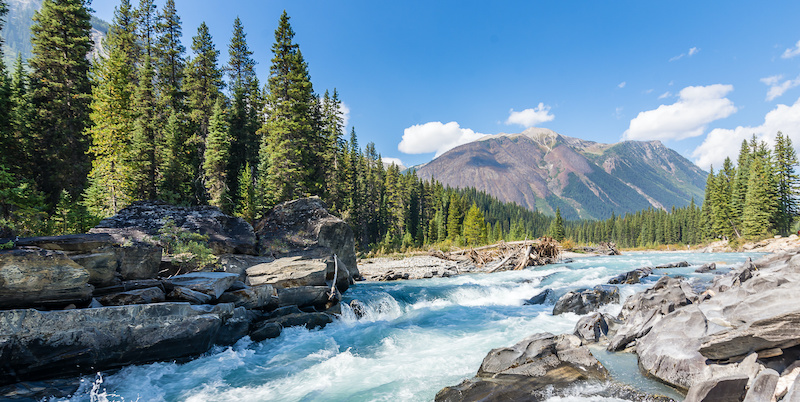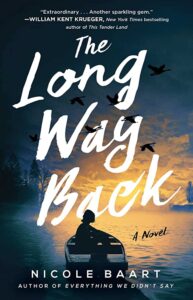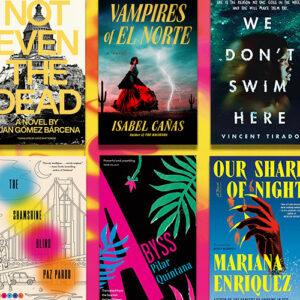When my husband and I lived in British Columbia, we used any and every opportunity to get outdoors. After trying life in suburbia, we opted to rent an old farmhouse (built in the late 1800s) on the bluffs above the Fraser River. We had a gorgeous view of Mount Baker from our front yard, and a babbling brook in the back. Sometimes, packs of coyotes would roam through the property late at night, howling at the moon and rattling the original, time-warped windows in the kitchen. I was grateful that our bedroom was on the second floor on those dark nights, but secretly feared that coyotes were surely smart enough to climb stairs if the windows ever shattered like I feared they would.
You’d think we had enough of the great outdoors surrounded by forest and field, but we always wanted more. We spent our free time and weekends hiking, fishing, and bush camping—which never required a reservation because we simply drove up logging roads and then trekked through the wilderness until we found a spot we liked. Usually by water. Once, when we were camped beside a small river in the middle of nowhere, I unzipped our tent well past midnight and stuck my foot into a couple inches of water. It had been raining lightly when we went to sleep, but it must have been pouring upstream—the river had flooded its banks and would have swept our tent away if I hadn’t woken at 3am and wondered why the sound of rushing water was so loud. This wasn’t our only close call, but it stands out as one of the scariest.
Still, we adventured undeterred. When I was seven months pregnant with our first child, I convinced my husband to take me fishing in the Vedder (one of my favorite pastimes). I was up to my thighs in the icy cold river, casting for trout in the clear, deep water of a seam. We were maybe ten yards from shore, set up with a little base camp on a sandbar, when a pair of men stuck their heads through the bushes that surged over the bank. Being an often overly friendly, small town girl, I smiled and waved. “The fishing is great!” I called to them. They smiled back, saluted, and disappeared. We never saw them again, but didn’t think much of it.
Until we hiked back to the place where we had parked our car. It was gone. The only evidence that it had ever been there at all was a set of tire tracks in the dirt and a glittering pile of broken glass. This was in the early days of cell phones, and because we never got reception on the river anyway, we had left our (often unusable) brick of a telephone in the glove compartment. Along with our house keys and my wallet. We practically invited a home invasion.
Getting out of that sticky situation is a story in and of itself (replete with doberman pincher guard dogs and a questionable shack in the woods that after further reflection was undoubtedly an illegal grow op), but the experience became more than just a cautionary tale to me—it changed the way I viewed our outdoor escapades. I had always thought the most dangerous aspect of our adventuring was the wild world around us. After our car was stolen and we had to hike in the growing darkness of a late summer evening in search of help (with me hauling around what felt like a basketball-sized baby in my belly), it became very clear that the biggest risk of all wasn’t nature, but man.
When I wrote The Long Way Back, I wanted to capture the joy and excitement of exploring the natural world. In fact, every experience that my mother and daughter duo, Charlie and Eva, chronicle, is something I have personally done or a place my family and I have visited. In some ways, the book is a travel guide to a few of my favorite spots on the continent. I also wanted to emphasize just how unpredictable nature is—sudden storms, wild animals, and threatening terrain are all part and parcel of getting outdoors, and forgetting that reality is something we do at our peril. And yet, I still believe the greatest menace is manmade. In the ways that we use, manipulate, and hurt each other—intentionally or not. I learned my lesson long ago as we walked the gravel path of the dyke above the river, and I carried a healthy distrust of strangers into the next stage of my life. Some of my innocence was lost that day, but at a relatively small cost. It could have been so very much worse. What Charlie and Eva face is a threat much greater than anything I’ve ever experienced, and yet it feels all too possible in a world where reality often seems much more fraught than fiction.
In the end, our car was found abandoned in the city less than six hours after it was stolen. The cops believed it was used for a drug run and then abandoned. No one ever came to our house out in the sticks, but we changed the locks all the same. Not that the new deadbolts would have done any good. Those windows were one thrown rock from oblivion. And we were alone in the middle of nowhere. Still, I wouldn’t change a thing, and continue to love and seek out new experiences whenever I can. Paulo Coelho says it best: “The danger of adventure is worth a thousand days of ease and comfort.” I couldn’t agree more. Do you?
***


















